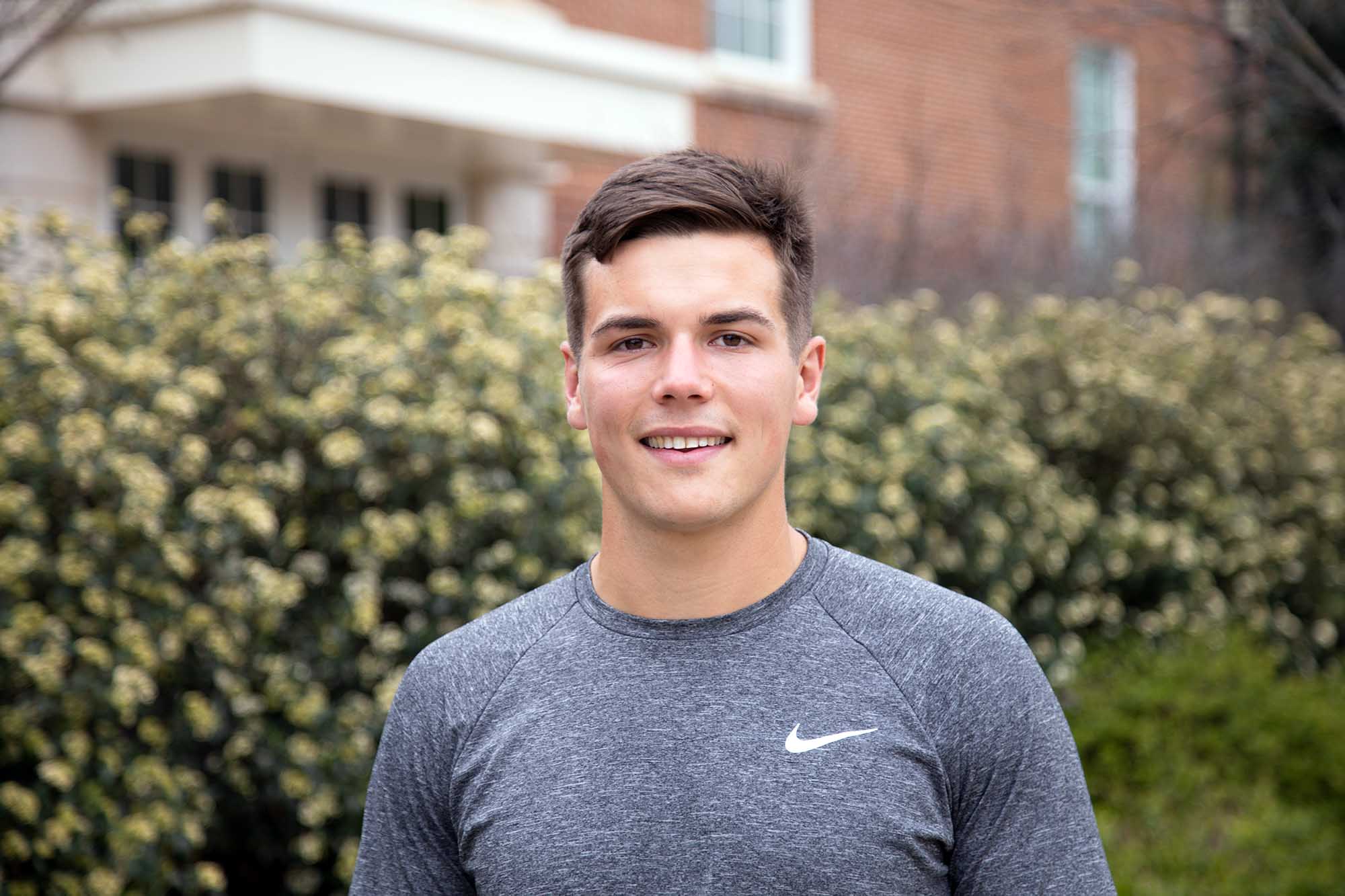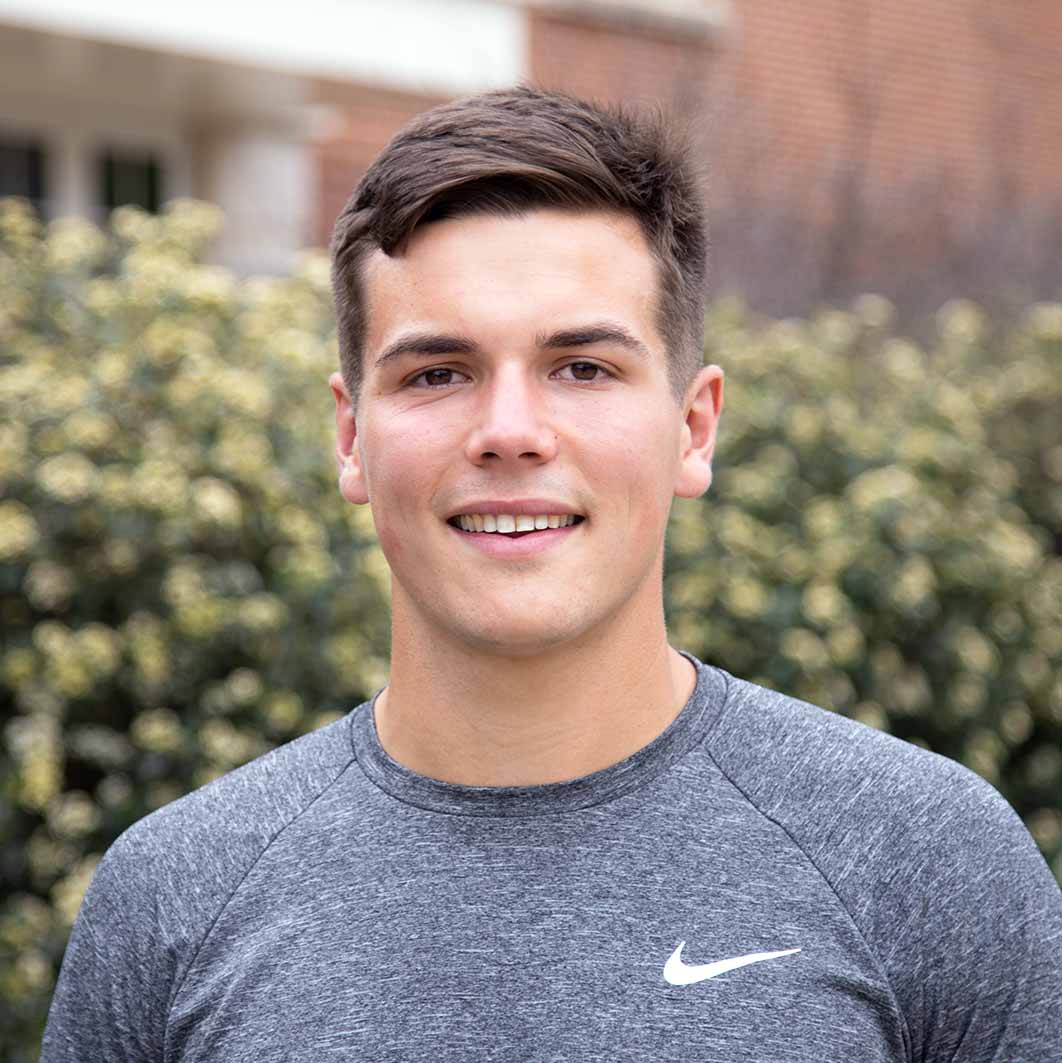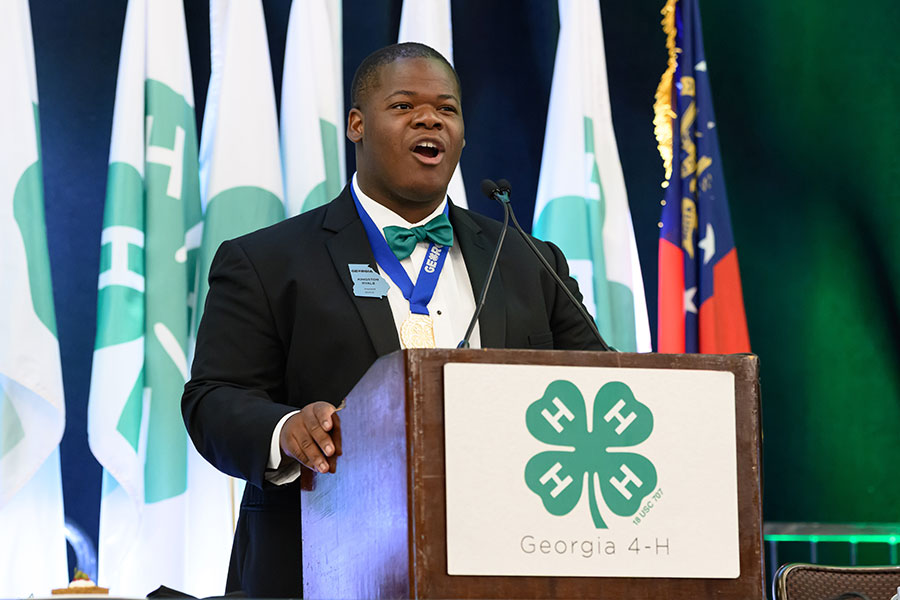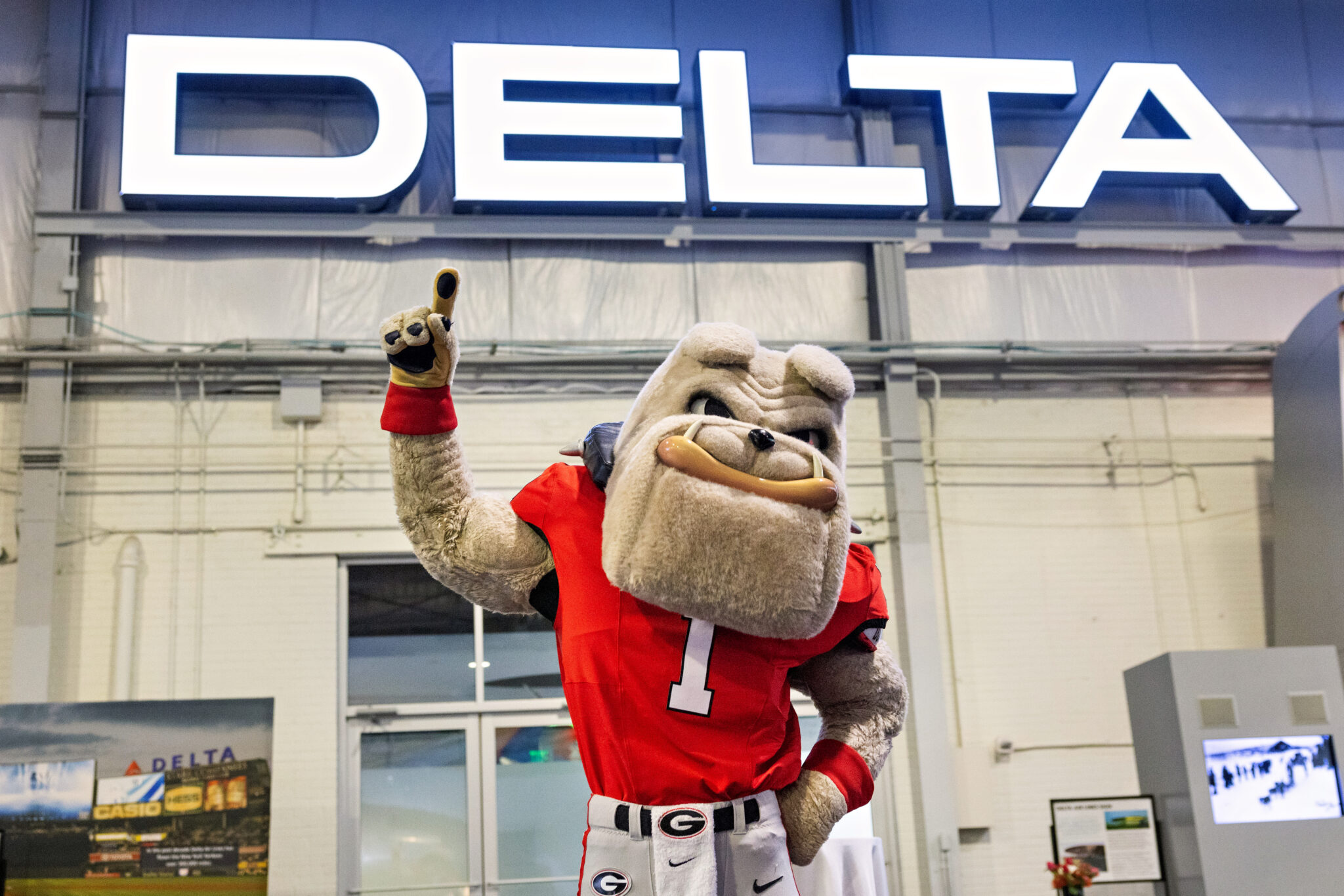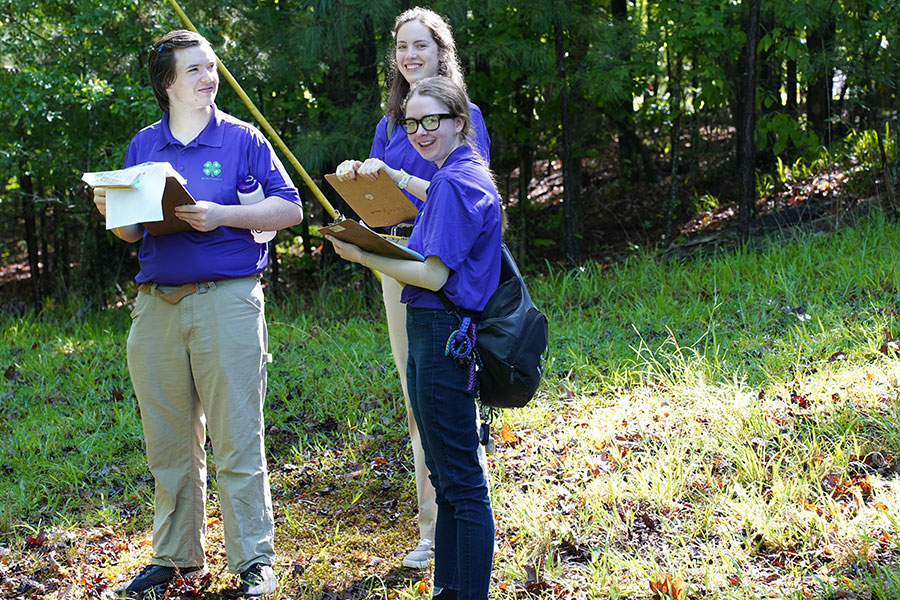Student clubs and activities are an active part of collegiate life, fostering networking and fun opportunities to engage in topic-based activities.
Despite the hybrid in-person and virtual learning at the University of Georgia, College of Agricultural and Environmental Sciences (CAES) students still found meaningful ways to connect while adhering to social distancing by holding club meetings outdoors and online.
The UGA Collegiate Young Farmers and Ranchers (YF&R) chapter, an offshoot of the Georgia Farm Bureau’s YF&R program for 18- to 35-year-olds, saw an opportunity to engage members through its inaugural two-day "discussion meet" contest via Zoom and streamed to the club's Facebook page.
“It was intimidating for us knowing that we would be live streaming the event,” said Kylie Bruce, a poultry science student and executive committee chair for the club. “This online format and live streaming platform allowed for our competitors to safely compete from the comfort of their homes or dorms and was great publicity for our club.”
This new event allows CAES students to practice with the hopes of moving on to the state and ultimately national rounds of the competition.
What’s a discussion meet?
The idea of the discussion meet is to facilitate conversation like it would happen in a committee or business meeting. It’s a hallmark event for YF&R and aligns with the national mission of developing public speaking, media training, issue advocacy, networking and leadership skills among its members.
“As a new club, we wanted to be able to send a representative from UGA to compete on behalf of CAES at the state contest,” said Bruce.
Eight CAES students participated in the first round discussion and four went to the second round to discuss how GFB could improve its effectiveness at recruiting members. Judges included CAES faculty, staff and alumni.
It’s also an opportunity for students to hone soft skills that employers are looking for such as critical thinking, constructive criticism and problem-solving.
“The discussion meet promotes listening and engaging dialogue in a civil manner on sometimes controversial topics,” said CAES Associate Dean for Extension Laura Perry Johnson, who is the club advisor. “The ability to listen and understand someone else’s point of view and then respond in a likewise civil manner is extremely important, particularly in today’s society. Besides being advocates for the agricultural industry, this is a very important life skill that they are practicing.”
‘Win or lose, it’s a lot of fun’
Adam Belflower, a third-year agribusiness student from Cochran, Georgia, took home the grand prize of $500 and will represent UGA at the state contest this summer.
“Talking about ag issues isn’t an everyday topic, so getting to have those conversations was really cool,” said Belflower. “It encourages me to dig into the current state of the ag industry in Georgia to have to think what would I do in a given situation. It’s easy to read the news but it puts it in a different perspective to find solutions when you’re presented with the different topics.”
This wasn’t the first public speaking competition for Belflower, who mastered in the Georgia 4-H project achievement competition talking about strawberry production and agritourism in his home county.
After seeing the final round of a discussion meet at the American Farm Bureau Federation conference his freshman year of high school, Belflower became interested and says he was excited to finally be able to participate in the state contest last year and is excited to participate again.
“Win or lose, it’s a lot of fun,” he said.
Fostering connections
Founded in 2019, UGA Young Farmers and Ranchers is the newest club on Ag Hill and also one of the largest with nearly a hundred members, according to Bruce.
“We cater to every student within CAES, no matter their major,” she said. “Because we focus of agricultural literacy, leadership and professionalism, our club is for everyone. We not only have speakers from industries, but we also encourage a relaxed environment at our meetings with games of kickball.”
Clubs and smaller classes in CAES also help make a large university feel smaller. It was an adjustment coming from a student class size of 140, Belflower said.
“I’m glad CAES encourages organizations and clubs as much as they do, and I’m glad I joined one — it’s been super helpful. It’s beneficial to network with people outside the classroom who will be joining the workforce and industry around the same time as me,” he said.
Belflower hopes to one day work with Georgia Farm Bureau or a lobbying group in some capacity. He says he was inspired to come to UGA by CAES alumnus Jed Evans, a 2007 ag communications graduate, who worked with GFB for nearly a decade. For now, he’ll be interning for the Georgia Department of Agriculture’s licensing department this summer.
The club meets every other Wednesday at the Pit on South Milledge Avenue and shares updates on Instagram @UGA_YFR.
To learn more about clubs at CAES, visit caes.uga.edu/students/current-students/clubs.

